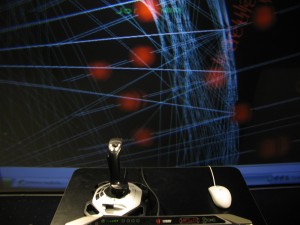
The Federation of American Scientists held a National Summit on Educational Games that has released a report titled, Harnessing the Power of Video Games for Learning. This is not, despite the sponsor, a scientific report. It is a call for funding for research into educational games. The report, however, slides into hype about American competitiveness. I think the pitch is that games will save American education and keep the country competitive. So, for example, on the first page it reads,
The success of complex video games demonstrates games can teach higher order thinking skills such as strategic thinking, interpretative analysis, problem solving, plan formulation and execution, and adaptation to rapid change.
The phasing may be unfortunate, but I read this as suggesting that financial success demonstrates educational value. Does that mean that the success of Celine Dion demonstrates that pop music can teach higher order skills? Further on they write,
Many companies and industries have transformed themselves by taking advantage of advances in technology, and new management methods and models of organization. As a result, they realized substantial gains in productivity and product quality while lowering costs. No such transformation has taken part in education. Education is not part of the IT revolution. (p. 6)
How can scientists say that education is not part of the IT revolution? Have they been to a school or university recently? For that matter, where are the companies using computer games to teach management methods and models of organization? (Perhaps the financial sector was playing a bit too much World of Warcraft to worry about managing our pensions.) My impression is that gains in productivity have come through automation and inventory control.
My counter proposal would be to invest in board games for teaching higher order skills. Lets bring back Monopoly (or the Landlord’s Game it was based on) as a way of learning about property, mortgages, and bankruptcy. Board games would be cheaper and probably teach the same higher order skills.
I’m sure I’m being unfair, and they do call for more research into what skills games could teach which is needed.








